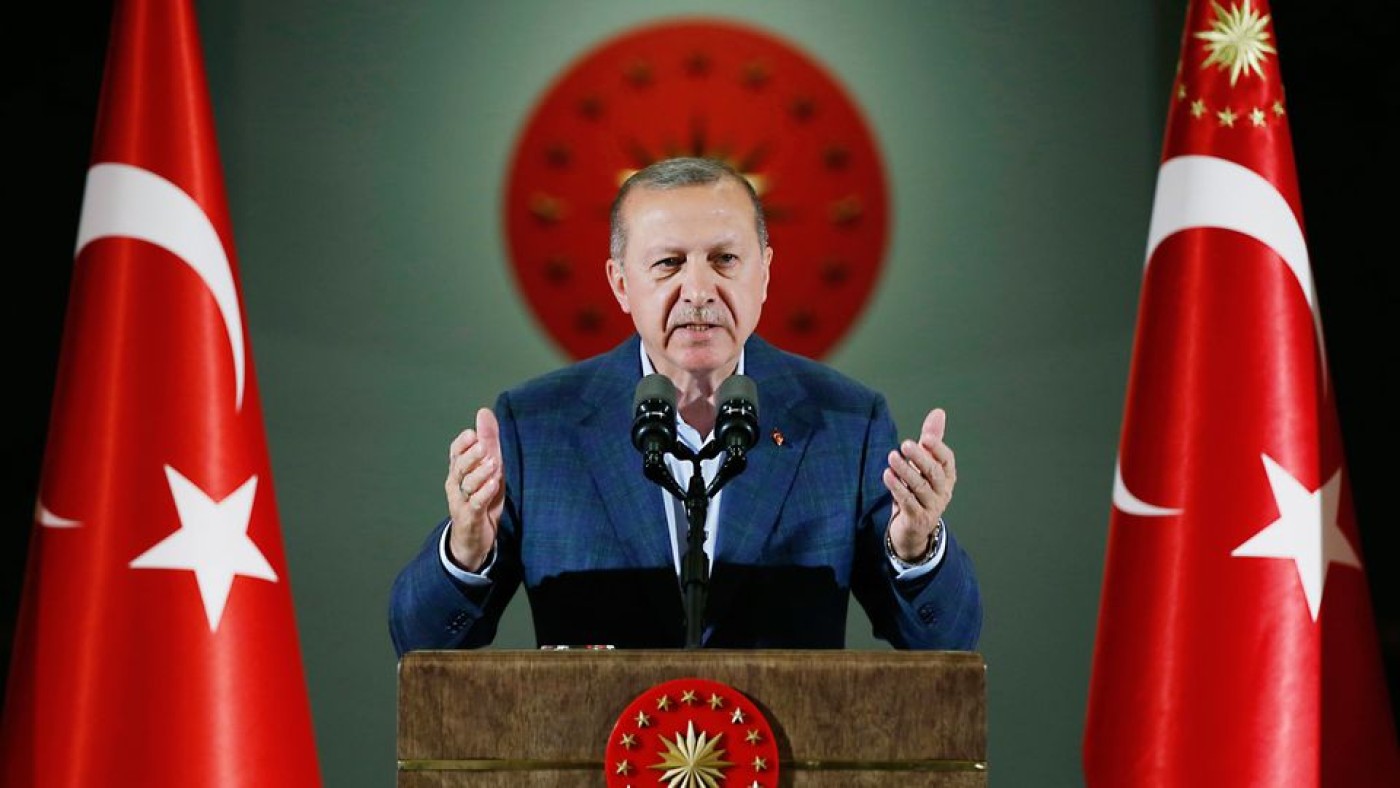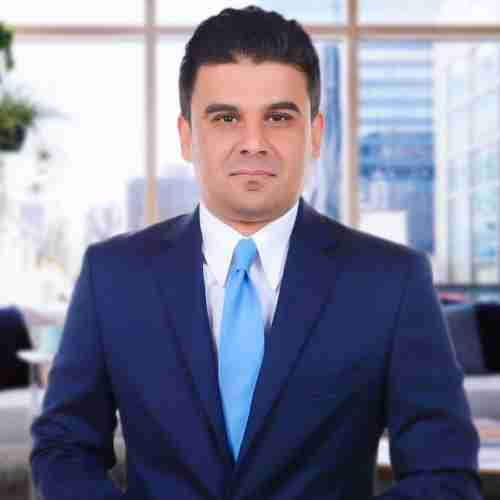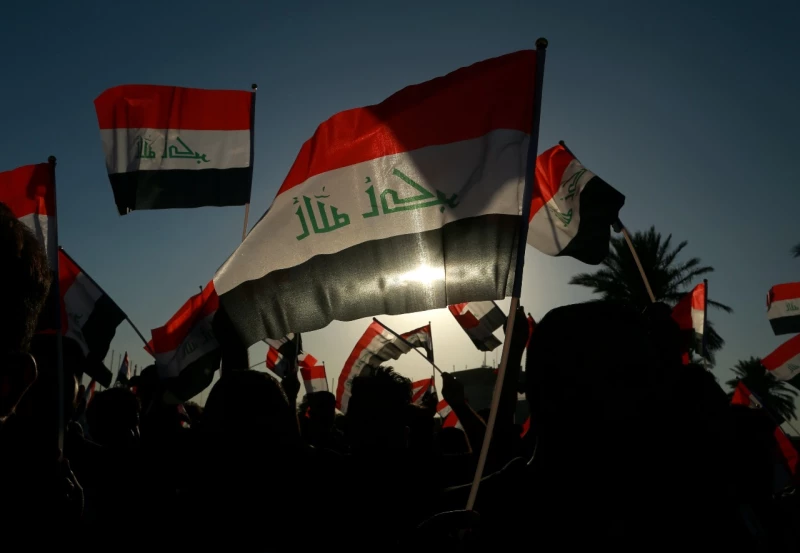The upcoming trip of Turkish President Recep Tayyip Erdogan to Iraq, scheduled for April, signifies a crucial juncture in the Iraq-Turkey relationship.
It marks Erdogan's inaugural visit to Iraq as President, following a prior visit during his tenure as Prime Minister.
Recent Turkish foreign policy has displayed a noticeable inclination towards Iraq, driven by political, economic, and security considerations.
This engagement has sparked inquiries into the anticipated Turkish role, the trajectory of its involvement, the pertinent issues it will address, and notably, the strategic stance Erdogan will adopt towards Iraqi affairs.
Discussing Turkey's evolving role in Iraq stands as the paramount question in the aftermath of Erdogan's visit, given the continuous shifts that Turkey's involvement in Iraq has undergone since 2003.
Various Turkish institutions, notably the Foreign Ministry and intelligence, have contended for influence over the Iraqi dossier. With Turkey's transition from a parliamentary to a presidential system in April 2017, the Presidency assumed primary control over Iraq affairs.
Now, in Erdogan's second term, and with the appointment of ideologically aligned figures like Hakan Fidan as Foreign Affairs head and Ibrahim Kalin as Intelligence head, it appears we're witnessing a phase of ideological and political cohesion within Turkish leadership vis-à-vis Iraq.
A new Turkish role
Erdogan's forthcoming visit is poised to directly impact Iraq's internal dynamics. The selection of former intelligence chief Hakan Fidan as Minister of Foreign Affairs offers insights into Ankara's forthcoming approach.
During his tenure in intelligence, Fidan oversaw discreet communications channels, particularly sensitive ones, with a range of regional and international actors. He also played a pivotal role in shaping security and intelligence strategies, facilitating reconciliations with adversaries, and notably, in Turkey's confrontation with the Kurdistan Workers' Party (PKK).
By bolstering Turkey's intelligence capabilities, Fidan successfully tracked and targeted numerous PKK leaders and Yazidi factions aligned with them in northern Iraq, notably in Sinjar.
Undoubtedly, Erdogan will subject the Turkish role in Iraq to a thorough reassessment, particularly concerning priorities and concerns.
Erdogan may seek to maintain the "nuanced foreign policy" towards both Erbil and Baghdad, as this approach affords Ankara a flexible maneuvering space within Iraq's domestic landscape.
Moreover, emphasizing the military presence and the PKK dossier, alongside prioritizing water and energy matters in Turkey's Iraq strategy, is paramount.
This is especially true given Turkey's inclination towards a "supranational" policy framework when engaging with Iraq on these critical issues.
Crafting a fresh vision for Turkey's engagement in Iraq poses the primary challenge for Erdogan, particularly in navigating political dynamics, security imperatives, economic interests, and military strategies.
Amid Turkey's challenging economic landscape, Ankara will strive to bolster its economic ties with Iraq. This ambition is exemplified by its endorsement of the "Development Road" initiative.
This project aims to expand Turkey's economic footprint within Iraq and facilitate market access in Gulf nations.
Moreover, the road initiative presents an opportunity for Turkey to convert conflict zones involving the PKK and Iran-aligned factions in northern Iraq into hubs of economic cooperation.
This strategic objective also underscores Turkey's bid to counter Iranian influence, notably in Nineveh province, through the establishment of the buffer zone it is presently advocating for.
The Kurdish Region quandary
The Kurdistan Region stands as a pivotal southern frontier in Turkey's national security strategy, with its dynamics intricately linked to Turkey's domestic landscape.
Presently, Turkey's trajectory is shaped by three challenging and foundational factors: firstly, addressing the Sinjar dilemma and mitigating its menace to Erbil and Turkey through curtailing the PKK's reach; secondly, preserving Erbil's influence in Iraqi politics; and thirdly, managing the Kurdish-Kurdish discord between Sulaimani and Erbil.
As Erbil grapples with mounting pressure to curtail its political sway in Iraq, there's a noticeable tilt towards Sulaimani in the evolving dynamics between Baghdad and Erbil.
This shift is accentuated by the unprecedented rulings of the Federal Court concerning the Kurdistan Region, with clear ramifications for its future role and significance.
These decisions ultimately seek to constrain Erbil's political influence, diminish its clout, and restrict its external engagements, notably in the oil sector and export activities. Consequently, this adjustment has repercussions on Ankara's delicate equilibrium between Baghdad and Erbil.
Hence, Erdogan's strategic imperative during the forthcoming visit will be to strike a delicate balance between Erbil and Baghdad. Any delay in taking this crucial step risks plunging Turkey's role in Iraq into genuine crises.
Boosting economic momentum
The "Development Road" project hinges primarily on cooperation between Iraq and Turkey, with Turkey acting as a bridge to Europe.
This necessitates a high degree of collaboration between the two nations, encompassing the interconnection of their road and railway systems and the establishment of unified regulatory standards.
Iraqi Prime Minister Mohammed Shia al-Sudani broached the idea with Erdogan during his visit to Turkey in March 2023, alongside ongoing discussions among officials from both sides through reciprocal visits.
Iraqi officials have affirmed that Turkey supports the project and is actively engaged in coordination efforts with Iraq.
However, Turkey is unlikely to realign its priorities solely to meet Iraq's needs. It may have additional considerations related to the security threat posed by the PKK and an economic interest in boosting Turkish exports to Iraq.
This strategic objective is one that Turkey will aim to align with any future Iraqi initiatives to implement the project.
Balancing act with Iran
Iran's strategic involvement in Nineveh province has prompted it to attribute considerable security importance to the Sinjar district. This encompasses interventions to shape the deployment strategies of factions aligned with Iran and coordinating with the PKK to establish control over the geographic corridor linking Nineveh province to locations such as Tal Afar, Sinjar, and the Syrian border.
Such actions enable Iran to maneuver more effectively in response to Turkish advances, thereby heightening the strategic significance of these areas from Iran's security standpoint.
Iran has leveraged its close ties with the PKK to develop a more specialized strategy in northern Iraq. This involves supporting, organizing, and supplying the Sinjar Resistance Units (YBS), established by the PKK.
Iran's involvement goes beyond Brigadier General Reza Aghdasi, who oversees the PKK file in the Iranian Quds Force, to include support from the intelligence apparatus of the Islamic Revolutionary Guard Corps.
This support began with frequent visits to Sinjar since late 2016, coordinated with factions loyal to Iran in the region, such as Ansar al-Hujjah, Asa'ib Ahl al-Haq, Kata'ib Hezbollah, and the Badr Organization.
Iran's role also extends to securing the overland route between Sinjar and Rabia towards the Syrian border. This area serves as a conduit for transporting fighters, weapons, and engaging in illicit activities like drug trafficking and smuggling, generating millions of dollars for Iran. These operations have undermined Turkish military efforts and present a continuing challenge for Turkey in the foreseeable future.
In essence, Erdogan's objective will be to shape a fresh strategy in Iraq, all the while safeguarding Turkey's political, economic, security, and military imperatives. He aims to navigate Iraq's terrain much like before but with a sharper focus on political pragmatism.
The current political landscape in both Iraq and Turkey is incredibly intricate, placing Turkish national interests at the forefront and presenting formidable obstacles to Erdogan's future endeavors.
Consequently, any new initiatives put forth by Erdogan will carry profound ramifications for the trajectory of Turkey's involvement in Iraq.
Erdogan's upcoming visit to Iraq could signal the commencement of his forthcoming strategy toward the nation.
Nonetheless, it's crucial to address the pivotal question facing Turkey regarding its stance in Iraq: will efforts to overhaul its foreign policy framework keep pace with the potentially significant transformations Iraq might undergo? This prompts the concern that Turkish policy may fall behind, rendering it ineffectual, or will Iraq be prioritized, paving the way for a dynamic, equitable, and impactful foreign policy approach.
The responses to these inquiries could hinge on Iraq's standing in Turkey's strategic calculus, its significance, and influence, as well as the role Erdogan is poised to assume in Iraq.
Crucially, it rests on Turkey's capacity to engage with pertinent issues and navigate the influential factors shaping its role in Iraq.


 Facebook
Facebook
 LinkedIn
LinkedIn
 Telegram
Telegram
 X
X



